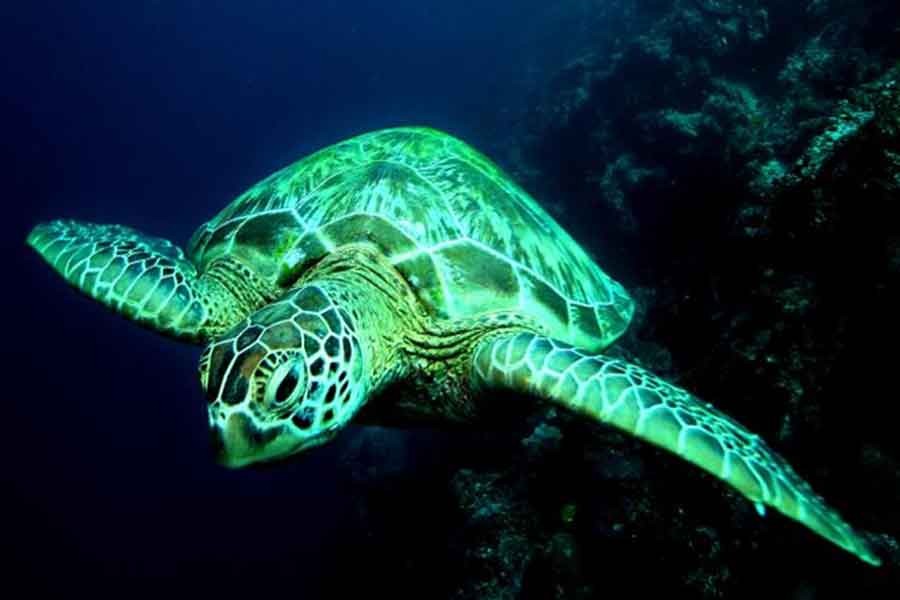A new report on Tuesday claimed that green sea turtles in Australia's Great Barrier Reef could be in danger of going extinct due to warmer ocean temperatures.
Conducted by the National Oceanic and Atmospheric Administration (NOAA) in the US along with Aussie scientists from the Department of Environment and Heritage Protection, the study found that male turtle number has been rapidly declining for around two decades.
In the cooler southern areas of the Great Barrier Reef, the number of female green turtles ranged between 65 and 69 per cent.
While in the warmer northern tip of the Reef, female green turtles accounted for a staggering 87 to 99.8 per cent of the population.
"Considering that sea turtle sex is dependent upon the temperature at which the egg incubates and considering that warmer temperatures produce more female hatchlings, we're concerned climate change might be causing this effect," biological marine researcher at the NOAA, Camryn Allen, said in the report.
"The pivotal temperature for sea turtle populations where they produce 50 per cent male and 50 per cent female is about 29 degrees Celsius."
"Any variation on that of about one to two degrees, could risk producing all females or perhaps embryonic death."
Average temperatures on the Great Barrier Reef have far exceeded that pivotal temperature, according to Allen.
The impacts of climate change continue to be of huge concern to conservation groups downunder, after two large-scale bleaching events in the past two years have impacted on the tourist destination's famous coral sea floor.
World Wildlife Fund Australia's chief executive officer Dermot O'Gorman said, "If it continues we're going to start to lose the male population, which is essential for breeding and keeping those populations sustainable in one of the world's most important green turtle populations."


